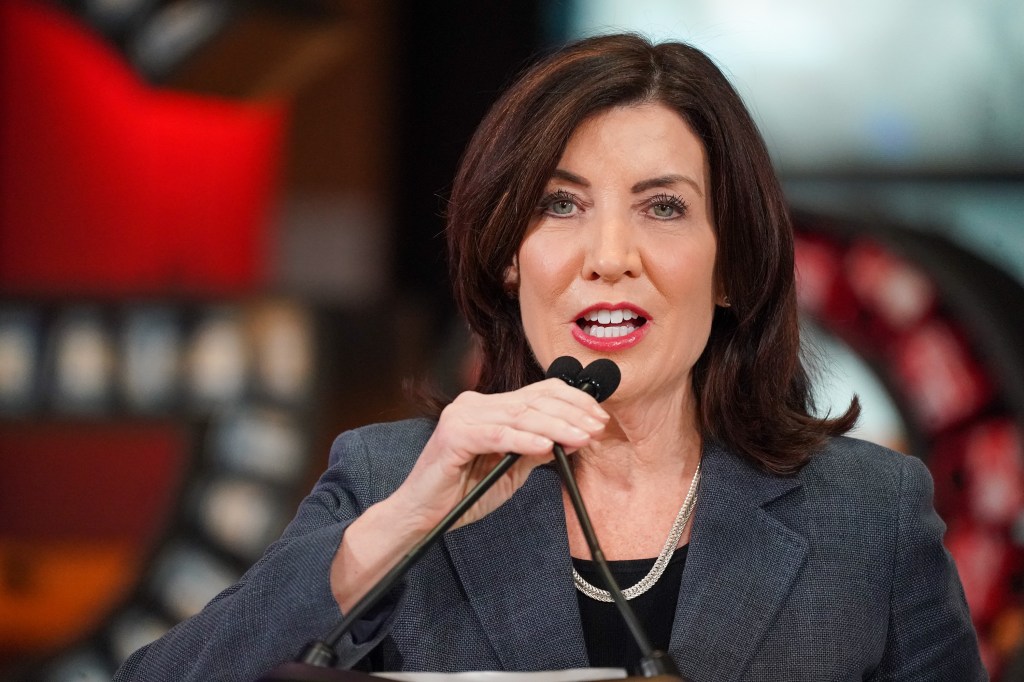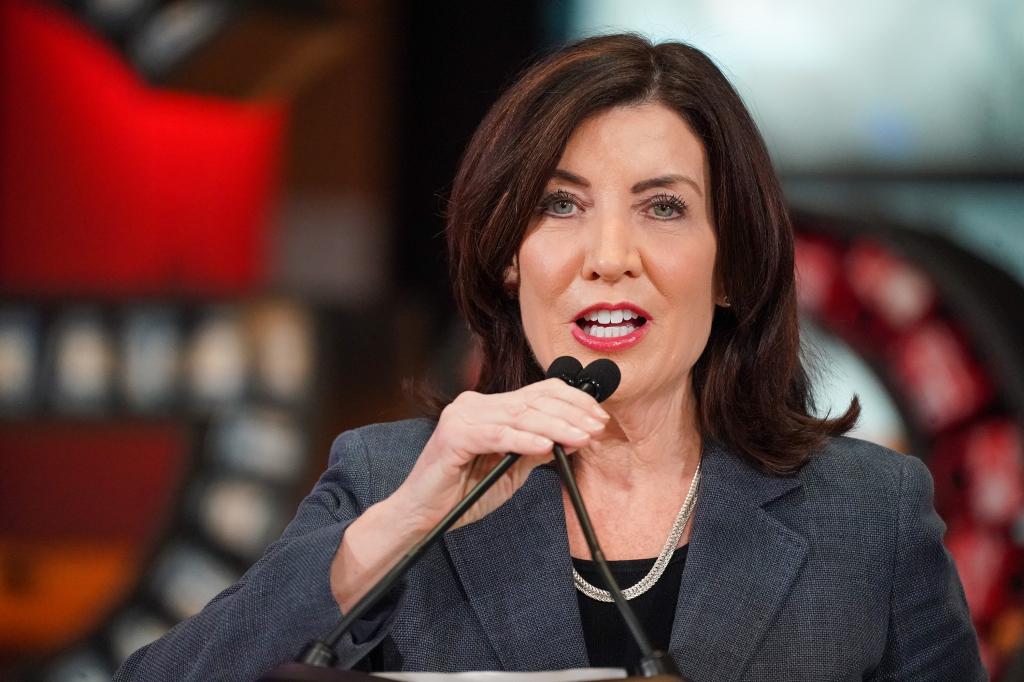Hochul facing heat over NY green push to ban key chemical in refrigerator, ACs: ‘Go too far, too quickly’
Contact The Author
Gov. Kathy Hochul is facing heat over a green push targeting a key chemical used in refrigerators and air conditioners that critics say could force business owners to shell out hundreds of thousands of dollars in new equipment.
Small business owners warned the aggressive timetable to phase out hydrofluorocarbons, or HFCs, starting next year, could cripple businesses, icing out jobs and triggering price hikes on food items and other consumer products, as they attempt to comply with the costly mandate.
“The rule will increase the cost of business for us. What we get from the state is nothing but a nightmare. They nickel and dime us everywhere,” said Tariq Khan, 70, who owns a BP convenience store on Nassau Boulevard in West Hempstead, Long Island.
Nelson Eusabio, a representative with the National Supermarket Association, said it could cost grocery stores between $300,000 to $1 million to eventually replace the cooling compressors that power refrigerators.
“It’s going to cost more to operate the new refrigerators,” Eusabio told The Post.
The fresh backlash comes after Hochul got burned politically last year for outlawing gas stoves in new housing.
Critics noted the timetable of New York’s proposed rule to prohibit HFCs — part of a state effort to curb greenhouse gas emissions — is more stringent than the one set by the federal government.
The federal American Innovation and Manufacturing Act of 2020 requires an 85% reduction in use of HFCs by 2036 — while Hochul’s proposed phaseout will begin as early as 2025 in some cases.
According to an analysis by the impacted refrigeration industry, the New York rules would require all new business facilities with equipment heavier than 50lbs to install refrigerators without HFCs beginning next year, retrofitting required by 2029 and all refrigerators with HFCs greater than 200lbs replaced by 2035.
New refrigeration-utilizing air conditioning and heat pumps must be HFC-free in residences by 2028.
Even eco-friendly Democratic lawmakers said the proposed rules would hurt small businesses and consumers.
“The New York regulations go too far, too quickly,” said Assemblyman Bill Conrad, who represents communities in the Buffalo region.
“It’s going to put some stores out of business and create food deserts,” Conrad noted. “The unintended consequences have to be thought out.”
The last thing New York consumers — who are already reeling from a period of record inflation — need is having to pay higher costs to buy food or appliances just to comply with the green mandate, Conrad said.
Bob Mesmer, who owns a refrigeration business in Buffalo, appealed to Hochul and state Department of Environmental Conservation Commissioner Basil Seggos to relax the draft rules.
“The proposed amendments would force us to replace or retrofit our existing equipment, regardless of its age, performance, or remaining service life, with alternative refrigerants that are not readily available, not proven to be safer or higher performance, and not compatible with our current systems,” Mesmer said in a Feb.19 letter to the governor and DEC boss.
Never Miss a Story
Sign up to get the best stories straight to your inbox.
Thanks for signing up!
Mesmer recommended the state exempt HFOs — short for hydrofluoroolefins — from the ban because they emit less greenhouse gas emissions than HFCs.
Hochul and her environmental agency defended the edict.
“To align with federal law, DEC has issued draft regulations that will protect the health and well-being of all New Yorkers,” a Hochul spokesperson said Wednesday.
“The draft regulations would not force any New Yorker or business owner to replace existing products or equipment.”
But industry sources said if the old refrigerators break, they may have to be replaced.
DEC is accepting public comment on the proposed regulations through March 19.
“The draft regulations are based on recent EPA regulations under the US AIM Act and are designed to align with federal and international law and the associated phasedown of HFCs, including the Kigali Amendment to the Montreal Protocol,” a DEC spokesperson said. “The draft packages are intended to transition large scale retail chains into compliance.”





